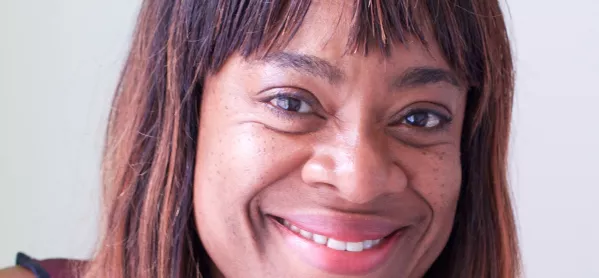- Home
- ‘We need to face our unconscious bias’
‘We need to face our unconscious bias’

Processing information within milliseconds, your unconscious mind is acting much faster than your conscious thoughts. You think that your judgements are sound and fair but scientific research on unconscious bias has proven that our judgments, actions, decisions are flawed. Unconsciously, a primitive part of your brain is in control of your mind’s navigations.
We operate daily through our ship of consciousness, thinking that we are in control, not realising that our unconscious minds are unwittingly steering our decisions, our processes, our judgments and choices. You cannot see what you cannot see. Your blind spots remain blind spots and we still don’t know what we don’t know.
We all do it. It is human nature. So why bother about this if it’s normal? After all, we have got by until now. Unconscious bias really becomes a problem when it functions in the workplace - which, of course, it does.
Improved diversity
Why should any of this matter to our colleges? The private sector has, for a long time, recognised the value of having more diversity within its governing boards and among its staff members. Firstly, it has seen direct financial benefits from reflecting the clients that it serves. Statistics have proven that businesses with diverse board members and staff reap higher profits. And for the FE sector, the benefits from improved diversity among boards and pedagogic staff may be financial and further reaching.
When I was a middle manager in an FE college from 2005 to 2010, there were five black, Asian and minority ethnic (BAME) teaching staff in the whole college. In 2010, when I asked senior managers about my progression route, they told me that there was “no progression route” for me.
I fully believed this, as I did not realise any possibility for my career to lead towards becoming a principal. I had never seen a black principal, did not know how people became principals and so, I decided that what my managers had told me was true. I left the sector, left teaching and went into training and development. I later achieved my MSc in business psychology.
‘Not a viable option’
FE needs talented and passionate teachers, managers and senior leaders, yet disabled and BAME individuals cannot see themselves reflected in our sector. They do not see a career in FE as a viable option, mainly because of the image our colleges portray to them and the public. How many blind or disabled students can you identify in your college? Can our lessons include them?
What image comes to your mind as a good fit for an FE board member? What about our teaching staff? Are we still hiring in our own image? The ultimate question is this: “What message is your college sending out to your students and to our society?” The chances are that BAME students will leave our colleges and take their young talent to every other sector. They will not see teaching, becoming a principal or an FE board member as part of their career vision. We are unwittingly showing them that a career in FE is not an option for them.
What can you do?
The first port of call is to get unconscious bias training. This should be followed up with senior leaders, board members, managers and teachers in taking a confidential unconscious bias test. The test is computer-based, quick and easy. Colleges’ leading bodies should aim to get working clarity about unconscious bias.
To help colleges align with our times and with society, the Association of Colleges is offering free unconscious bias training for FE boards of governors. This training is also relevant for senior leadership teams and middle managers. Awareness is everything. Part of the solution comes from no longer being blind to our blind spots.
We are constantly seeking financial growth and commercial development, yet if we continue navigating into the future with self-perpetuating blind spots, our sector is unlikely to develop in the way and rate that we all desire. There are many types of unconscious biases, all of which may be running amok at your college, preventing the excelling of talent and limiting your college’s development and the growth of your student bodies.
FE ‘undermining its own reputation’
Without robust unconscious bias training, our sector will certainly continue to be left behind the times. Meanwhile, the FE sector is undermining its own reputation by unwittingly showing a hand to the very talent and resources that it wishes to embrace.
Further education is an inspiring sector. Amidst the backdrop of hard-hitting economic challenges, we remain at the forefront, driving transformation for the UK’s young adults. I hold the vision that we will also drive for transformation by pulling ourselves into the future by aligning with the society in which we serve.
Kayla Benjamin is the training and development manager at the Association of Colleges
Keep reading for just £1 per month
You've reached your limit of free articles this month. Subscribe for £1 per month for three months and get:
- Unlimited access to all Tes magazine content
- Exclusive subscriber-only stories
- Award-winning email newsletters